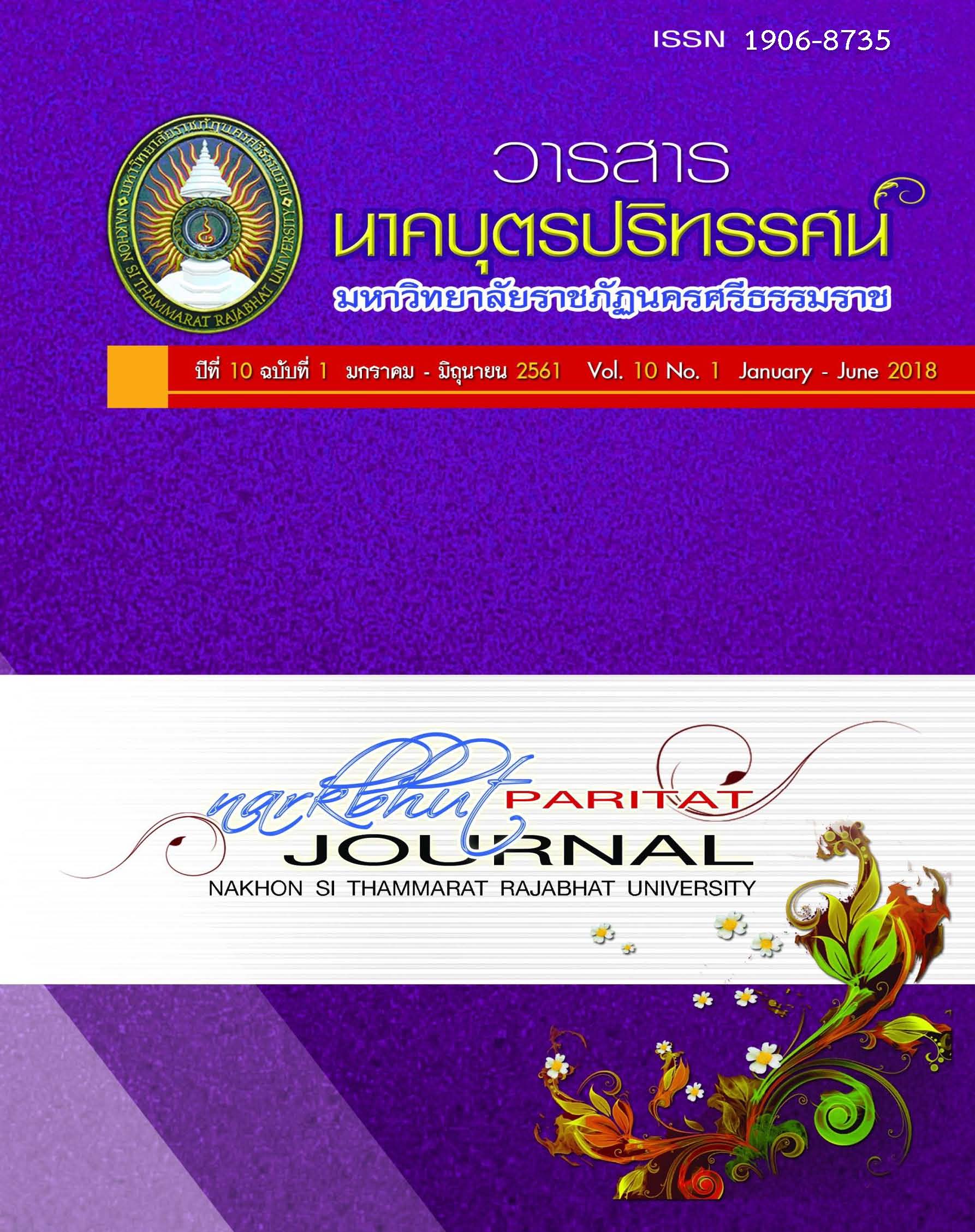ภาษาที่สะท้อนธรรมะของพระรามกับภาษาที่สะท้อนอธรรมของทศกัณฐ์จากบทละคร เรื่องรามเกียรติ์ พระราชนิพนธ์ในรัชกาลที่ 1
Main Article Content
บทคัดย่อ
บทคัดย่อ
การศึกษาภาษาที่สะท้อนธรรมะของพระรามกับภาษาที่สะท้อนอธรรมของทศกัณฐ์จากบทละครเรื่อง
รามเกียรติ์ พระราชนิพนธ์ในรัชกาลที่ 1 กล่าวถึงภาษาที่สะท้อนธรรมะของพระรามเป็นตัวละครที่เป็นแบบอย่างที่ดีมีคุณธรรมความดีมากกว่าข้อบกพร่องรักษาวาจาสัตย์เป็นอย่างยิ่ง เป็นผู้มีความเสียสละและรักน้อง ซื่อตรงต่อนางสีดาเพียงผู้เดียวอย่างเสมอต้นเสมอปลายในรูปแบบของนักปกครองพระรามเป็นนักปกครองที่ดี ฟังเสียงที่ปรึกษามากกว่าจะตัดสินใจตามลำพังไม่เห็นแก่ประโยชน์สุขส่วนตัวและยังเป็นผู้ที่รู้จักให้กำลังใจผู้ใต้บังคับบัญชา โดยการกล่าวชมเชยหรือประทานรางวัลเมื่อลูกน้องทำงานสำเร็จลุล่วงไปด้วยดีและรำลึกถึงความดีนั้นอยู่เสมอ ส่วนภาษาที่สะท้อนอธรรมของทศกัณฐ์เป็นยักษ์ที่มีฤทธิ์มีอำนาจมีศักดิ์ศรีและความทะนงตน มีมานะ แต่ในขณะเดียวกันทศกัณฐ์ก็เป็นยักษ์เจ้าเล่ห์ ขาดทศพิธราชธรรมมักมากในกามคุณ หลงใหลในความงามของนางสีดาจนไม่เห็นแก่บ้านเมืองเผ่าพงศ์และมิตรสหาย ดื้อรั้นเอาแต่ใจตนเองจนกระทั่งประสบความหายนะในบั้นปลาย ทศกัณฐ์ถึงจะทำความชั่วไว้มากแต่ก็ตายอย่างชาตินักรบและรู้สำนึกผิ จึงนับว่าต้นร้ายปลายดี การตายของทศกัณฐ์ก่อให้เกิดความสะเทือนใจสงสารต่างกับการตายของฝ่ายอธรรมทั่วๆ ไป
คำสำคัญ : ภาพสะท้อนธรรมะ ภาพสะท้อนอธรรม พระราม ทศกัณฐ์ รามเกียรติ์
Abstract
To study language reflects dhamma of Rama with language reflects evil of Ravana from Ramayana of King Rama I royal work mentioned language of Rama is a good role model more than deflects, verbal treatment is very important, sacrifice and love brothers, be honest with Sita. In the form of a ruler he was a good governor, listen to counsel rather than to decide alone, not selfish and also known for encouraging his subordinates. He praised or rewarded to his followers done the job well and always reminded that good. The language reflects evil of Ravana who is a powerful demon, dignity and pride, and sedulous. However, Ravana is a tricky demon, lack of virtues, avid in carnality, passionate in the beauty of Sita and not care about land, tribe and friends. He was stubborn, selfish and suffered in the end. Ravana did many evil things but died like a warrior and repented. His death depressed unlike the death of other evils.
Keyword: Dhamma reflection, evil reflection, RAMA, RAVANA, RAMAYANA
Article Details
เอกสารอ้างอิง
Jongsatidwattana, S. (1985). Thai collection languages of East and Southeast Asia. Bangkok:
Khrongkan Phœeiphrae Phonngan Wichakan Khana, Aksonrasat,
Chulalongkonmahawitthayalai. (in Thai)
King Buddha Yot Fa Chulalok the Great (Rama I). (1963). Ramayana. Pránakon: Klang
vidhayasueksa.co.ltd. (in Thai)
Poonsub, S. and Banklaw, S. (1982). Origins and behaviours of the characters in the Ramakien
compared with those in the Ramayana. Bangkok: Thanesuan-printing. (in Thai)
Reurudee, R. (1981). Introduction to Thai Language and Thai Liteture. Bangkok: The
Agricultural Cooperative Federation of Thailand. Limited. (in Thai)


